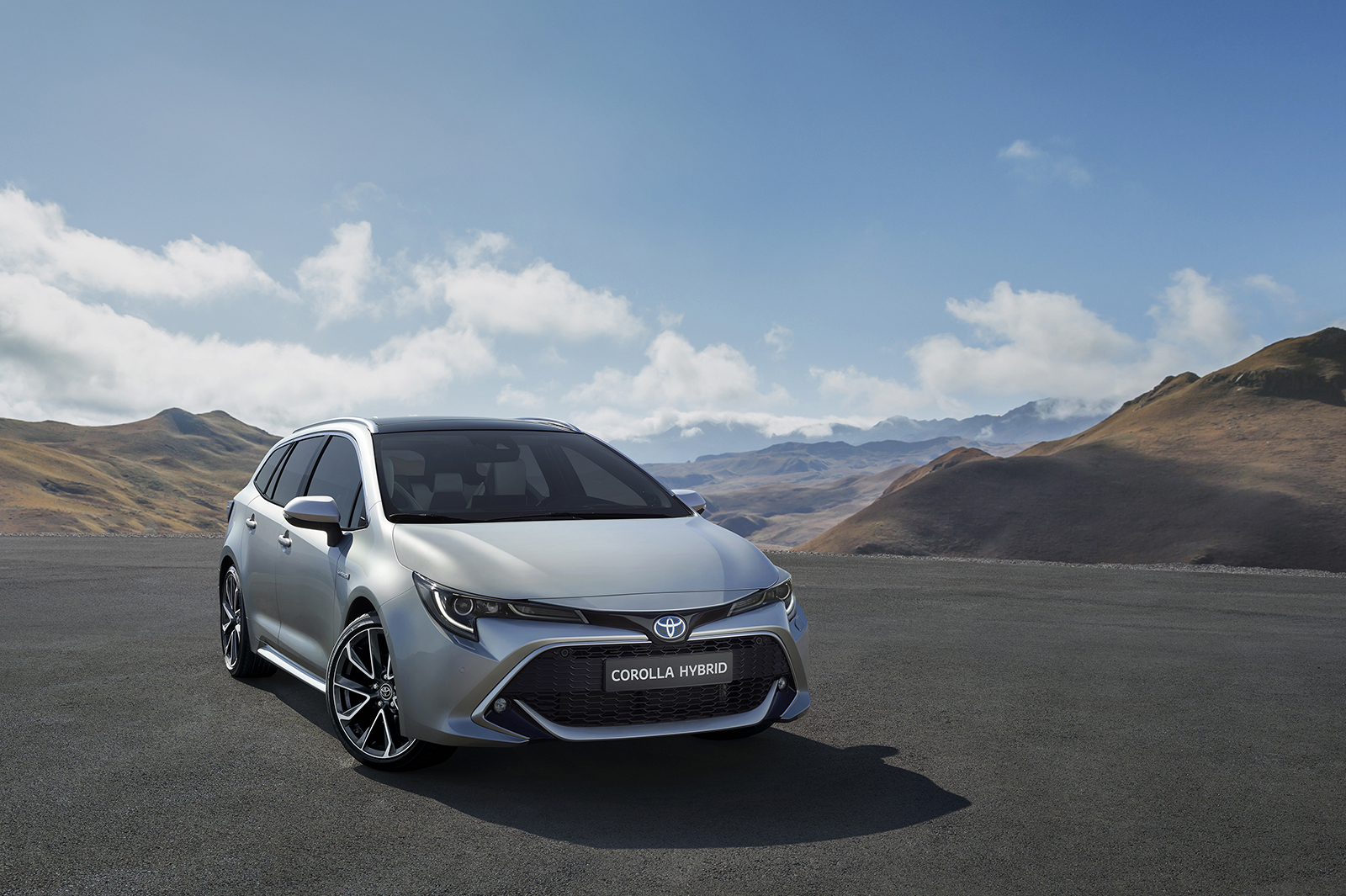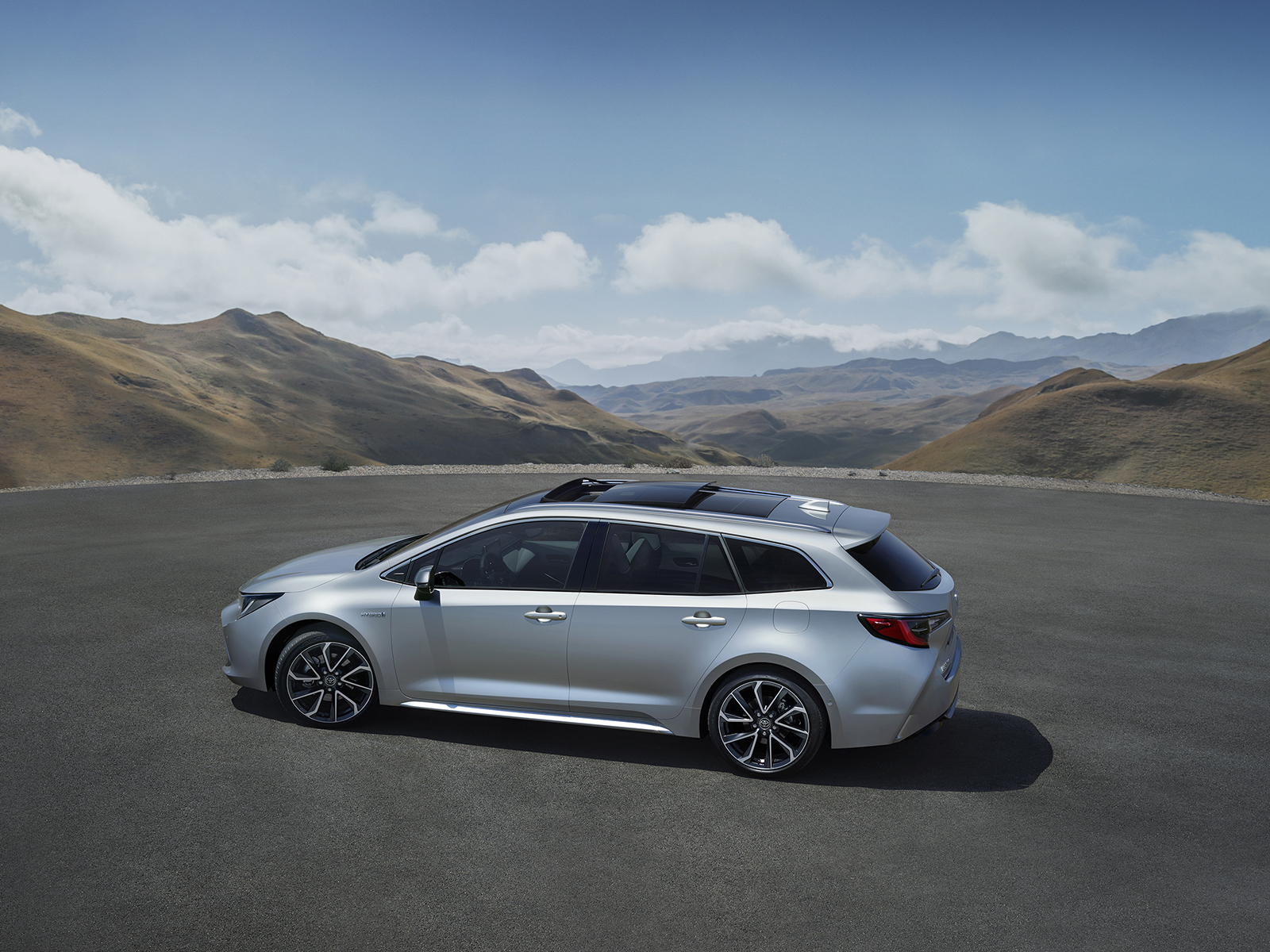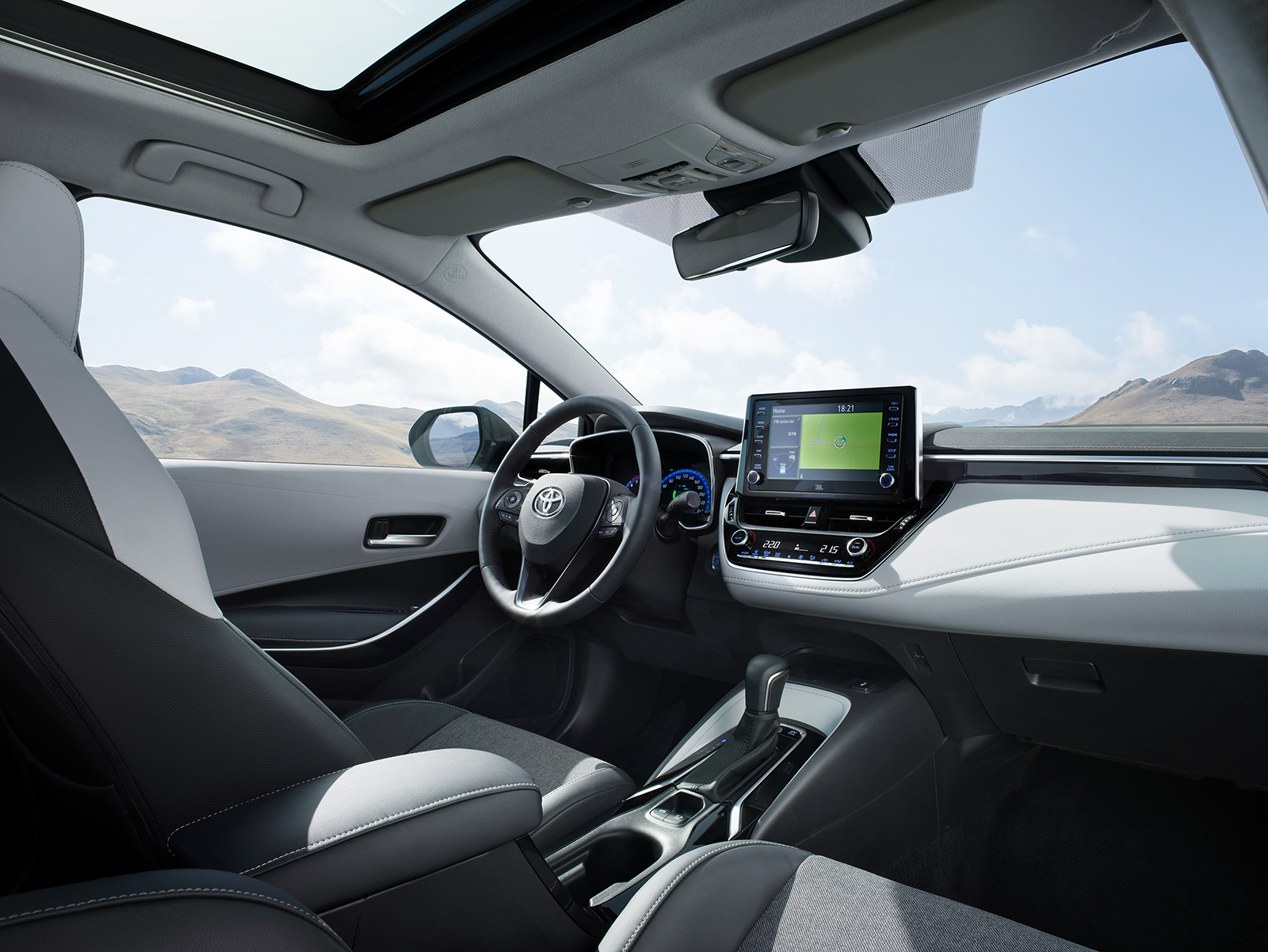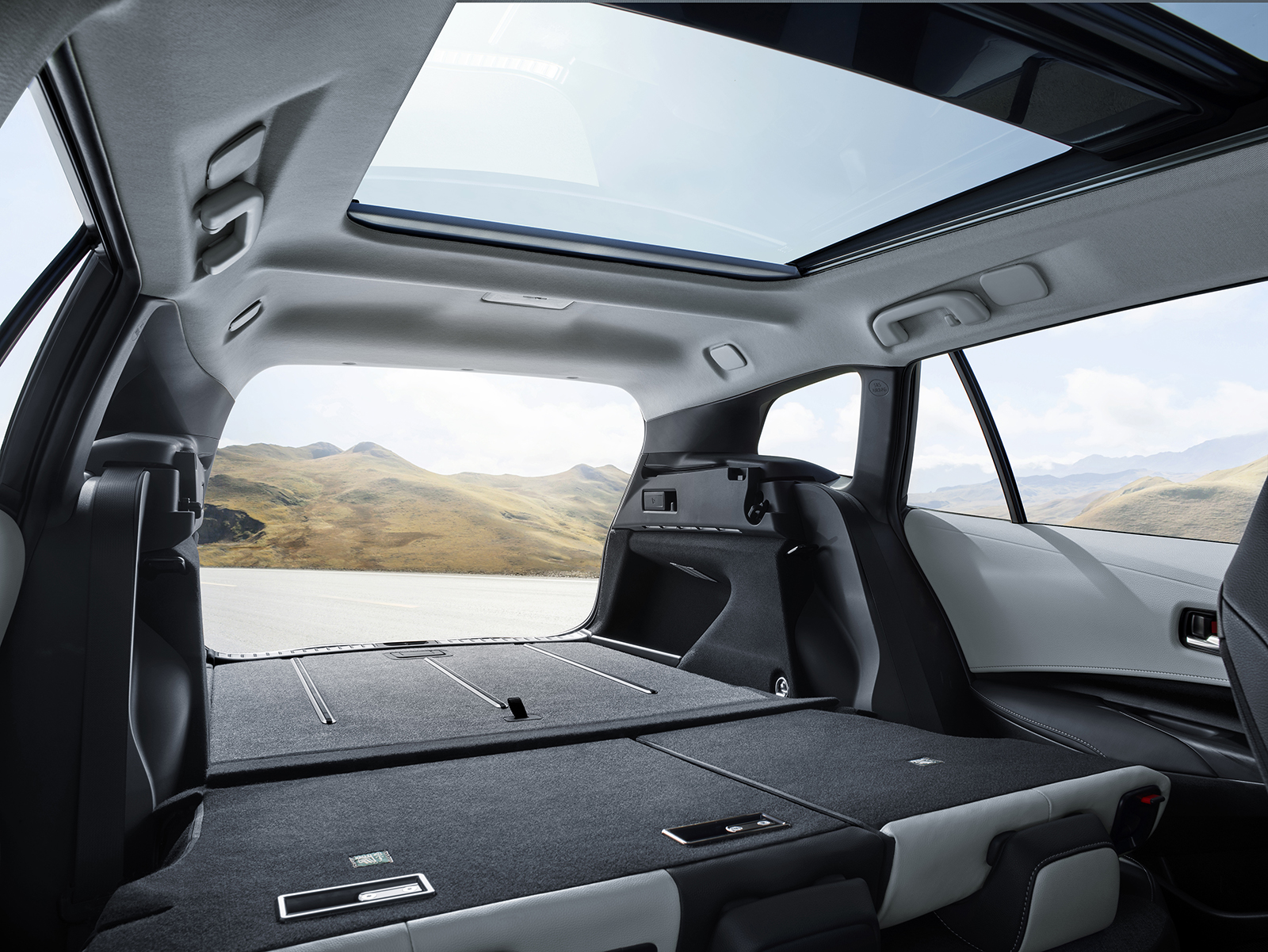Toyota recently revealed a new form of its popular and worldly Corolla model on the web . It’s called the Corolla Touring Sports, but without the fluffy marketing terms, it’s basically a full five-door wagon version of the Corolla. It adds itself as the third variant to the 12th generation of Corolla, next to the five-door hatchback and the traditional four-door sedan (due sometime later this year or early 2019).
Sounds pretty boring and plain vanilla? Well — wait until you look at it!
Toyota already had our attention with the all-new and truly handsome 2019 Corolla five-door hatchback. But this elongated Corolla wagon just makes that new shape look even better. A vehicle this good looking is quite unexpected, especially for a model and nameplate that’s generally known to be as interesting and aesthetically pleasing as a laundromat washing machine.
This isn’t the first time a Toyota Corolla wagon existed, as previous-generation models featured wagon and hatchback body styles in addition to the bread-and-butter Corolla sedan. However, the U.S. primarily received the sedan body style of the Corolla while the hatchback and wagons were sold throughout the rest of the world. Only recently did we see the revival of the Corolla hatchback, which first launched as the now-defunct Scion iM, and is now sold, oddly, as the Corolla iM, rather than as just the “Corolla hatchback.”
Due for a full reveal at the Paris Motor Show this year, the new Toyota Corolla Touring Sports also boasts a hybrid powertrain equipped with the choice of a 122-horsepower 1.6-liter or a 180-horsepower 2.0-liter gas engine as the mid and upper tiers of its model options, making it the second-ever Corolla with gas-electric hybrid power.
Toyota boasts the new 2.0-liter hybrid Corolla wagon is the only car in its class to offer such a combination of performance, low emissions, and fuel economy. Otherwise the base engine in Europe is a 1.2-liter turbocharged gas engine with 116 horsepower.
Like the newest Corolla hatchback, the new Corolla Touring Sports is built using Toyota’s latest New Global Architecture, or TNGA, specifically the GA-C platform. With MacPherson strut suspension up front and a new multi-link rear with revolutionary shock absorber valve technology (likely similar in design to the one recently launched on the new Lexus ES sedan), the new Corolla Touring Sports on paper also promises to provide excellent handling and ride quality. Toyota even touts handling and ability as a highlight, especially with the optional Adaptive Variable Suspension (AVS).
There are other cool features as well, such as the world’s first “3D driver’s meter” (Toyota didn’t specify what exactly that is), a premium heads-up display, Toyota’s latest Touch infotainment, a top-spec JBL GreenEdge Premium sound system, and more.
Toyota’s European division didn’t say if the car will make it stateside. But given how the Corolla Touring Sports is built on the same platform as the Corolla sedan and Corolla iM for our shores (and even the Prius), in theory, it shouldn’t be too difficult or costly for Toyota to import the model to the U.S. And it would make for a great competitor to the likes of the Volkswagen Golf SportWagen.
Additionally, like all other vehicles, new European and Japanese models tend to tout new features and design elements that trickle down to U.S.-bound models. So while there’s a chance we initially may not get the Corolla Touring Sports or any of its cool features, like its new 2.0-liter hybrid powertrain, at launch, it still may be a hint of things to come. Especially since Toyota pledged to increase its hybrid and electric offerings with future models.






